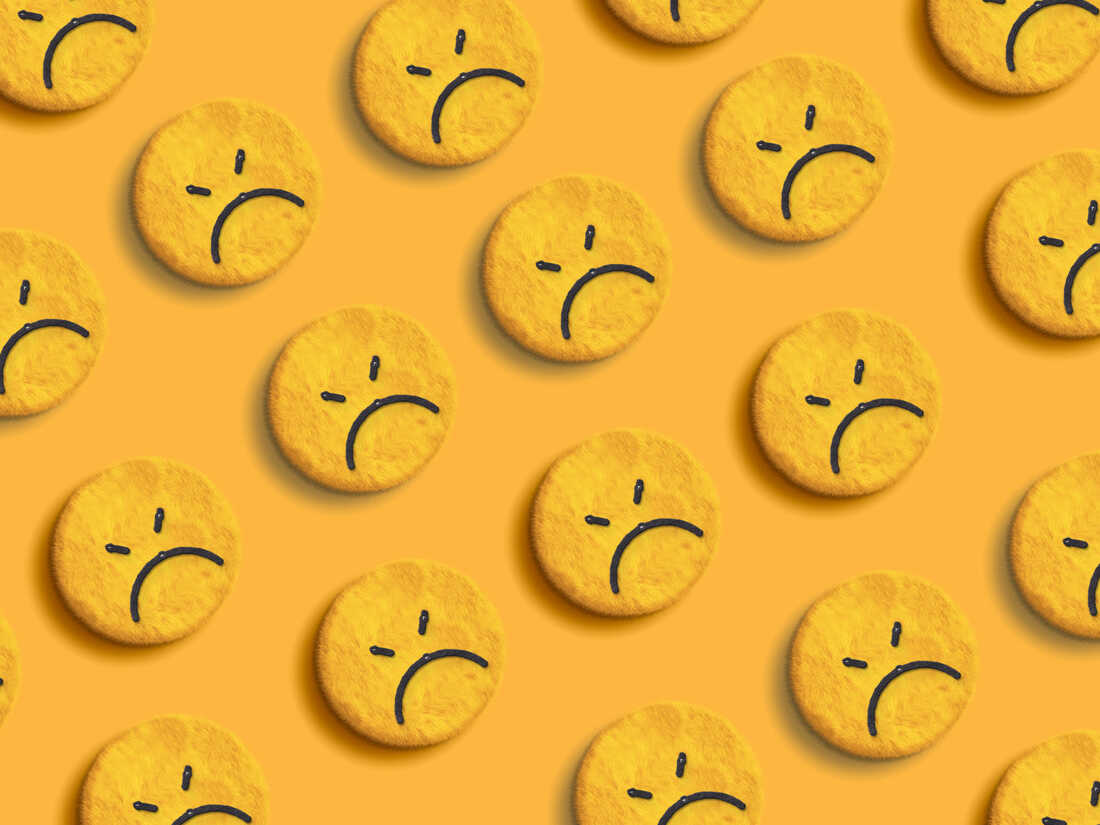[ad_1]

This you?
RichVintage/Getty Images
hide caption
toggle caption
RichVintage/Getty Images

This you?
RichVintage/Getty Images
A recent survey shows Americans are more unhappy with the customer service they’re getting than ever. The poor guy above has been on hold for 24 months (we assume — it’s a stock photo).
Who are they? The thousands of Americans voicing their discontent with customer service. You can find them on basically any Yelp page out there.
- Plenty of industries have been upended by the pandemic, and it turns out that customer service and hospitality at large have declined in the eyes of many Americans.
- 74% of Americans say they’ve had product or service problem in the past year, according to the 10th edition of the National Customer Rage Survey, which tracks satisfaction and incivility. The incidence of problems has more than doubled since 1976.
- And on the other side, consumers are described as increasingly vocal about it — literally. The survey found 43% of customers yelled or raised their voice to express displeasure about their most serious problem, up from 35% in 2015.
- If you’ve spent any time on the rage-inducing side of customer freakout TikTok, you’ve probably seen enough to know things feel… off.
- The survey is conducted by Customer Care Measurement and Consultancy, in collaboration with the Center for Services Leadership/W.P. Carey School of Business at Arizona State University.

Turn that frown upside down.
Carol Yepes/Getty Images
hide caption
toggle caption
Carol Yepes/Getty Images

Turn that frown upside down.
Carol Yepes/Getty Images
What’s the big deal? Well, there’s a lot of unhappy people out there.
- There are a number of reasons why customer service may feel worse, like a shortage in workers in some industries, the proliferation of tech as a part of the process, and a lack of incentive for companies without competition. (Have you ever tried to contact your internet provider about anything?)
- Amas Tenumah wrote a book on the subject of customer service, and he cites increased customer expectations not being met as the biggest part of the problem.
- “Today, we live in a society where the expectations are rising by the brands. Just think about the commercials. They promise you the world … and then the objective reality hits. And you try to reach customer service. And you are met with a bot. You are met with wait times … that’s really where the chasm is. This gap between expectations and objective reality just continues to get wider and wider.”
What are people saying?
Tenumah is the author of Waiting for Service: An Insider’s Account of Why Customer Service is Broken and Tips to Avoid Bad Service. He’s also the founder of a management consulting firm, and spoke with NPR about what everyone seems to be unhappy with.
On how tech’s role often frustrates more than it optimizes:
I’ll tell you, Americans are incredibly gracious when they start. If it’s on a scale of 1 to 10, most people start at nine or nine and a half.
But then you start this interaction and you’re met with an automated system — press one, press two — or a machine you’re trying to communicate with. They can’t understand you, or you’re met with a chatbot on the website, and then you get past that and then you give them your information.
And then you finally get to a human, and the human asks you to repeat your information. Now, your grace started at nine. At this point you were like a four, and then, God forbid, they transfer you.
By the time you are transferred, after dealing with the machine, repeating your information, you are at zero and lots of people are in the negative. This is now where the abuse and the rage really intensifies on the part of the customer.
On how worker empowerment makes a better experience for everyone:
It’s still a human to human business. And so what I tell clients is first and foremost, your first customers are your service employees.
Making sure they have the right tools, they are compensated appropriately, and your policies and procedures do not put them in the middle of you and the customer.
So this is why I encourage these organizations to empower that professional. You’ve trained them. You’ve invested in them, so that when the customer makes a reasonable request, they can just fulfill it and they can be a hero. And the customer doesn’t have to ask for a manager and escalate in the calls and the emails get transferred in power.
Want to hear more from Tenumah? Listen to the NPR interview by clicking or tapping the play button at the top.
So, what now?
- Despite the increase in AI chatbots and automated customer service systems, Tenumah says customer service is a business that is extremely difficult to calculate with a formula or algorithm. Improving that system starts with valuing workers.
- “I usually say customer service is harder than rocket science. And the reason it’s harder is while there are formulas they can calculate [to] put a rocket on the moon, there is no formula for putting two strangers on the same phone call to resolve an issue.”
- Tenumah says we need to change the social contract and not think of these employees as “low skill workers.” “These are complicated requests, because if they were easy, a bot or a machine could do it. And the quicker we evolve as an industry, the better off we will be,” he said.
Read more:
[ad_2]
Source link
